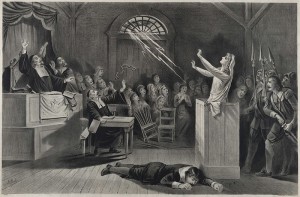Welcome to the Wakefield Doctrine (the theory of clarks, scotts and rogers)
A Comment from Linda yesterday, included the observation that we (are), “…attracting a group of individualistic minded peeps.” I replied,
“It was a ‘tentative article of faith’, in the beginning of this blog that, by virtue of what the Doctrine is, the readership would have to be those with very robust imaginations…and, more importantly, people who enjoyed playing with the new…”
…’tentative article of faith‘ (?!)
New Readers? Here at the Doctrine we talk about personal realities. More precisely, we talk about living in one of three characteristic personal realities (aka worldviews): that of the Outsider (clarks), the Predator (scotts) and the Herd Member (rogers). What may not always come across strongly enough in these Posts is the fact that these are real realities. One of the primary differences between the Wakefield Doctrine and other personality type systems/schema is that we do not focus on what a person tells us about themselves as much as we focus on appreciating how a person is ‘relating themselves to the world around them’.
In fact, if there is a single statement that best describes the Wakefield Doctrine (and it’s value), it would be, ‘using the Wakefield Doctrine as a perspective, we infer how a person (or ourselves) are relating themselves to the world around them and, by virtue of this understanding, be able to see the world as the (other) person is experiencing it.‘ And in order to pull that off, you need to be able and willing to imagine that:
- …reality is, to a certain, but very real extent, personal. nothing weird, like singing pencils or the ability to turn invisible (no, wait… that is possible in the clarklike world view)… lets say, the ability to flying without the aid of technology
- …there are three characteristic worldviews (personal realities) that of the Outsider, the Predator and the Herd Member
- …we are all born with the potential to experience life in any one of these three realities and that, at an early age, we settle into one, (our predominant worldview), however, we never lose the capacity to experience the world as do ‘the other two’
- …what other people refer to as personality types (and imply is, in part or in whole, a simple choice of the individual to act a certain way), the Wakefield Doctrine describes as ‘the most effective strategy for dealing with the world, given the nature and character of the world….you know, the world of the Outsider, the life of the Predator, the reality of the Herd Member
- …using the Doctrine is as easy as your imagination. Know the characteristic of the three worldviews, observe the people in your life and (correctly) infer how they are relating themselves to the world around… (as Lizzi would say), ‘Boom!’ you now know more about the other person than they know about themselves
- …it’s fun to be able to see the clarks and the scotts and the rogers in your life! …and, at times, initially, it can be a little spooky. If you persist with the Doctrine you will have the experience of interacting with a person, they will act in a manner that you find yourself thinking, ‘she is so a clark‘ or ‘jeez! not too much a scott!’ or ‘oh man! he is such a roger‘ the spooky part is that you’ll then realize that the behavior that prompted this response was not among the descriptions or examples or characteristics that you read here… they’re just acting the way they are supposed to…
so, have fun today. Tell us about any characteristic of (any of) the three worldviews that you may observe today. Remind me tomorrow to get started on the topic of secondary aspects. thank you

















